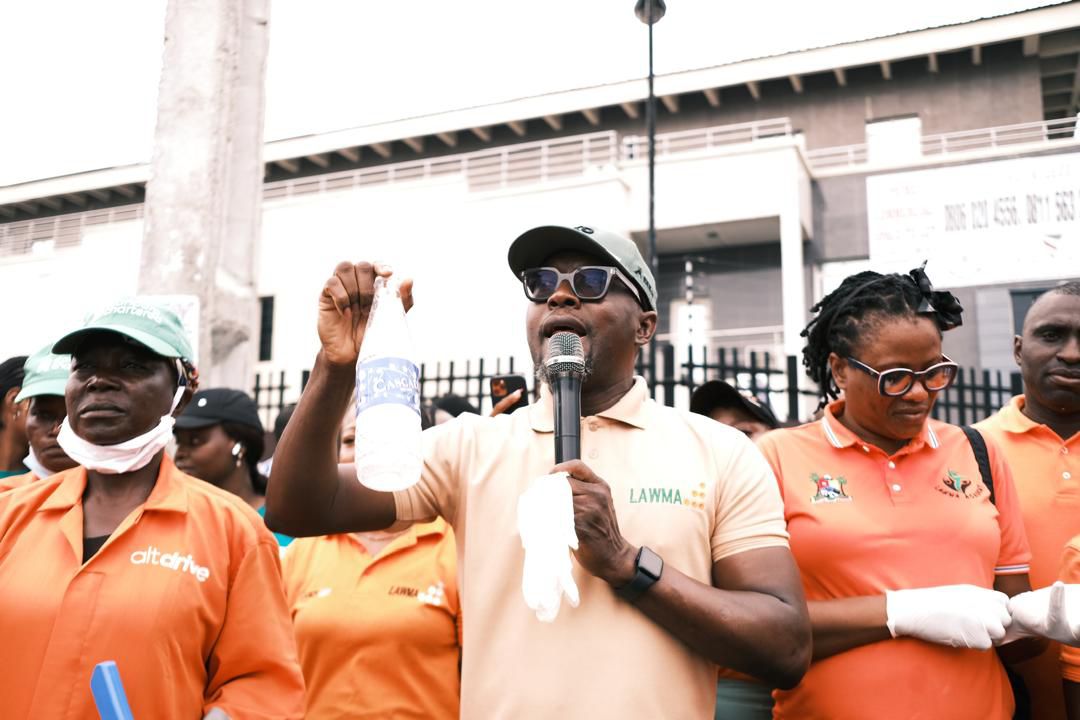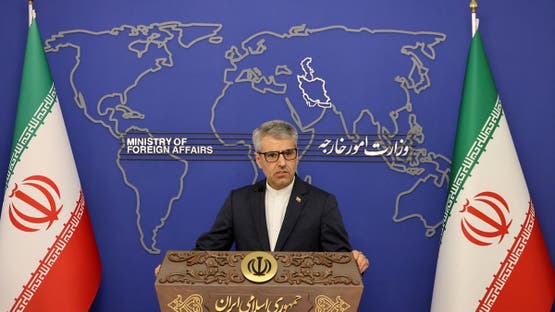BY BABAJIDE FADOJU

In the past week, the Lagos Waste Management Authority (LAWMA) intensified its campaign to rid the city of indiscriminate dumping and poor sanitation practices.
While much of the public attention has focused on the arrests and high-profile enforcement operations carried out by LAWMA and the Lagos State Environmental Sanitation Corps (LAGESC), under the Lagos State Ministry for Environment and Water Resources, the agency has also been working behind the scenes to drive the behavioural change necessary to sustain its efforts.
For LAWMA, enforcement and education are not opposing strategies; they are two sides of the same coins.
Across several local government areas, LAWMA officials have been actively engaging residents through community sensitisation programmes. This includes door-to-door visits, community meetings, and public messaging campaigns designed to encourage households and businesses to take greater responsibility for managing their waste.
A core part of this outreach is the agency’s call for all residents to register with licensed Private Sector Participants (PSPs), who are authorised to collect and dispose of household waste under the state’s waste management framework.
This registration formalizes waste collection and ensures that residents are serviced regularly and within the law.
LAWMA has also been actively promoting its “Adopt-a-Bin” programme, which seeks to eliminate the excuse of not having a proper receptacle for household waste.
Under this scheme, households, businesses, and institutions are encouraged to own standardised, covered bins which help prevent littering, reduce the spread of disease, and support timely collection by PSPs.
The use of such bins is not optional; under Lagos State Environmental Law, every property is expected to have at least one bin that meets specified requirements.
Yet, many households still fail to comply, contributing to the growing burden of open dumping across streets, drainages, and road medians.
Only this last week, the agency was involved in the Oko-Oba abattoir close-up. Led by the Honourable Commissioner, Tokunbo Wahab as he wielded the authority bestowed on him by the state Governor, Babajide Sanwo-Olu as he shut down the abattoir.
“The government sent me here and I am giving you the message, I am going to close it down fully,” Wahab told workers at the abattoir, ,The contingent consisted of officials from Lagos State Task Force, Kick Against Indiscipline (KAI) unit, as well as LAWMA.
The abattoir has struggled with poor hygiene standards, indiscriminate dumping of waste, and environmental violations that posed serious health risks to residents and nearby communities.
Despite repeated warnings and stakeholder engagements, practices within the facility remained far below acceptable standards.
The closure belies the need for accountability, but more importantly, it brings to light the critical role of education in changing behaviour.
LAWMA believes that enforcement must go hand-in-hand with public awareness. While shutdowns may serve as immediate deterrents, long-term change will only come when individuals and businesses understand the consequences of environmental negligence. That is why the agency continues to ramp up its sanitation advocacy and waste education campaigns, particularly targeting markets, abattoirs, and high-density commercial zones.
To back its educational efforts with accountability, LAWMA has also been publicising its hotlines and reporting channels. Residents are encouraged to report PSP failures, illegal dumping, and unlicensed cart pushers. These reports feed directly into the agency’s monitoring system and allow for quicker intervention in problem areas. Importantly, LAWMA is not relying on punitive measures alone.
The agency has been working to expand access to waste services in low-income areas by deploying tricycle compactors where conventional trucks cannot operate, as well as strengthening its marine waste operations in communities along Lagos’ extensive coastline.
What is becoming increasingly clear is that LAWMA recognises that enforcement without education cannot bring long-term change.
Arresting a few offenders each week might make headlines, but it is only by changing public attitudes and habits that the city’s waste challenge will be truly addressed. Illegal dumping, open burning of refuse, and the use of informal waste collectors are all rooted in decades of neglect, poor infrastructure, and limited public awareness.
LAWMA’s dual strategy acknowledges these complexities and tries to tackle them from multiple fronts, through policing, persuasion, and partnership.
This shift in tone, from purely reactive to proactive and community-led, is vital. LAWMA’s efforts this past week show an agency that understands the scale of the problem and is determined to work with Lagosians to solve it.
While the road ahead remains long, especially in informal settlements and densely populated zones, the current approach offers a more sustainable path forward. Enforcement may stop a few hands, but education can change minds. And only with both can Lagos truly become the clean, healthy city its residents deserve.








